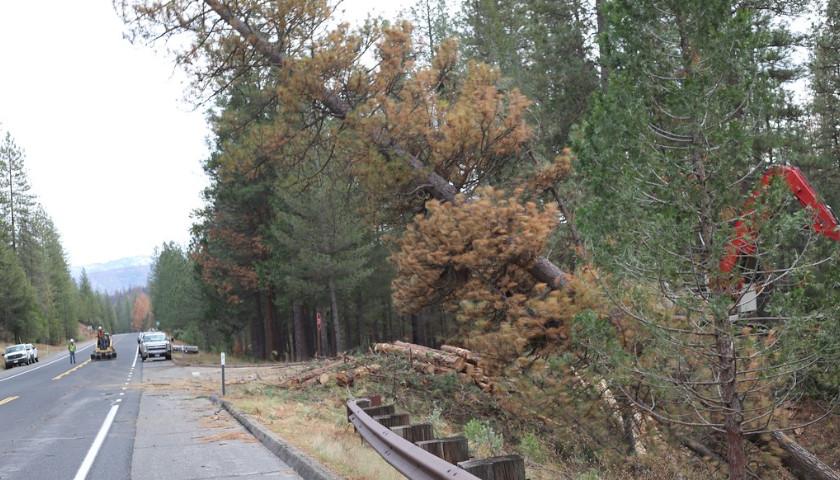by Christian Wade
A Connecticut proposal to replace “hazardous” trees along the state’s highways could be axed by lawmakers over the plan’s hefty price tag.
The legislation would require the state Department of Transportation to hire private arborists to replant new trees along the Interstate 95 corridor that the agency removes as part of a public safety program to prevent collisions with motorists.
But a fiscal note attached to the bill by the state’s nonpartisan Office of Fiscal Analysis said the project would come with an eye-popping $100 million-per-year price tag.
“DOT does not have experience planting trees but, based on the amount of land the department deforests in any given year through both its maintenance and construction programs, reforestation efforts are expected to be in the $50 million — $100 million range annually, beginning in FY 25,” the office wrote.
The proposal would also require the state to notify residents when trees are being removed and pursue other highway barriers.
The Connecticut Department of Transportation has removed hundreds of dangerous trees along the I-95 corridor. The move comes in response to several deadly crashes involving falling trees and roadside collisions.
But Connecticut property owners who live adjacent to I-95 have complained about the tree-cutting program that has cleared large swaths of canopy, which had blocked noise and tailpipe pollution from the highway. They packed a February public hearing and claimed the state had failed to notify them in advance of tree clearings.
“The clear cutting of trees along some of Connecticut’s roadways has been met by many complaints from the state’s residents,” reads a summary of the bill. “The lack of the once natural tree barrier has led to increased noise and light pollution, which has been disparately affecting communities bordering these roadways.”
Under the proposal, if tree planting adjacent to a deforested area isn’t feasible, trees could be planted somewhere in the city or town where the trees were removed, as long as they are within five miles of the site of deforestation or on an off-site property.
The proposal, which had cleared the Legislature’s Transportation and Environmental committees with favorable votes, appears to have stalled with the looming June 7 end of the legislative session.
The last action on the bill shows it was referred on April 25 to the Committee on Appropriations, which has yet to take any action on it.
– – –
Christian Wade is a contributor to The Center Square.
Photo “Fallen Tree” by Pacific Southwest Forest Service, USDA. CC BY 2.0.





